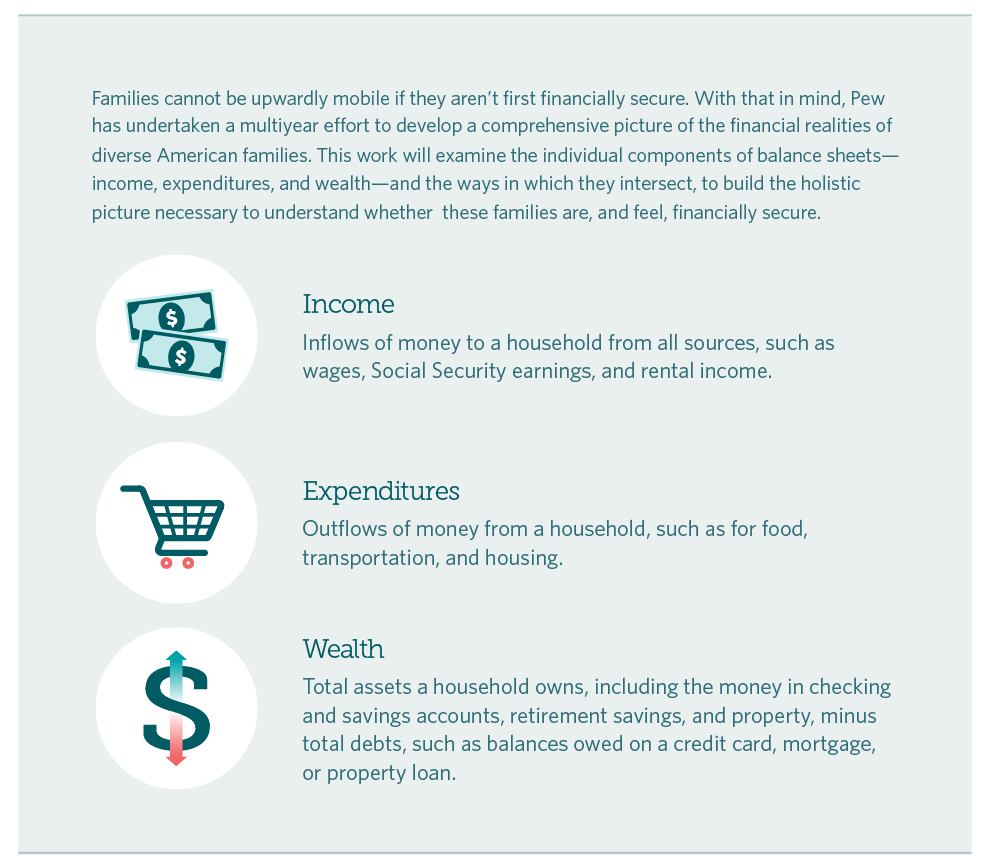
As the U.S. economy continues to recover from the Great Recession, Americans’ financial security is receiving more attention in the media and from policymakers, and for good reason: Earnings have increased only 2 percent over the past decade; nearly half of Americans regularly experience substantial fluctuations in their income; and 55 percent of households could replace less than a month of their income through liquid savings. Combined with this insecurity, consumption—a strong indicator of consumer confidence—dropped in 2013 to levels not seen since 1990.
These statistics tell a powerful story about the economic tightrope that families are walking. When combined with information about people’s financial attitudes, perceptions, and priorities, they indicate that Americans feel vulnerable and stressed about all the parts of their balance sheets: income, expenditures, and wealth.
To better understand the financial well-being of families and the connection between short-term economic security and long-term economic mobility, The Pew Charitable Trusts recently launched the financial security and mobility project. This research initiative has two goals:
- Examine the financial health of diverse American households.
Pew will conduct research to provide a clear, unbiased picture of the fiscal health of families and the factors that affect it. Although households face many economic challenges and are affected differently by government policies and programs, the available economic information is often overly broad, examining all households together; or exceptionally narrow, focusing only on individual components of financial security, such as savings, debt, or earnings. Pew’s research will inform the policymaking discussion by exploring which families are falling behind and which parts of their finances are most fragile. By taking into account the financial realities across income levels, generations, and all the parts of family balance sheets, Pew will contribute to the discussion around helping those who need it the most. - Assess the effectiveness of savings policies.
Evidence is growing that unrestricted short-term savings are critical for family economic stability and mobility. Still, more research is needed to understand how households use savings, what impedes their ability to build a cushion, and what strategies are effective at promoting savings. This research will investigate two promising approaches with the potential to improve basic household savings for millions of families: prize-linked savings programs and the removal of asset limits in public assistance programs. Pew research will assess the impact of these approaches, the policies that would need to be changed to advance reforms, and the feasibility of enacting the policies.
No single solution exists for stabilizing family balance sheets. Putting families on solid financial footing and the road to upward economic mobility will require thoughtful and strategic policy interventions. As policymakers strive to increase opportunity for all Americans, programs that support asset accumulation will be key: Families cannot be economically mobile if they aren’t first economically secure.
